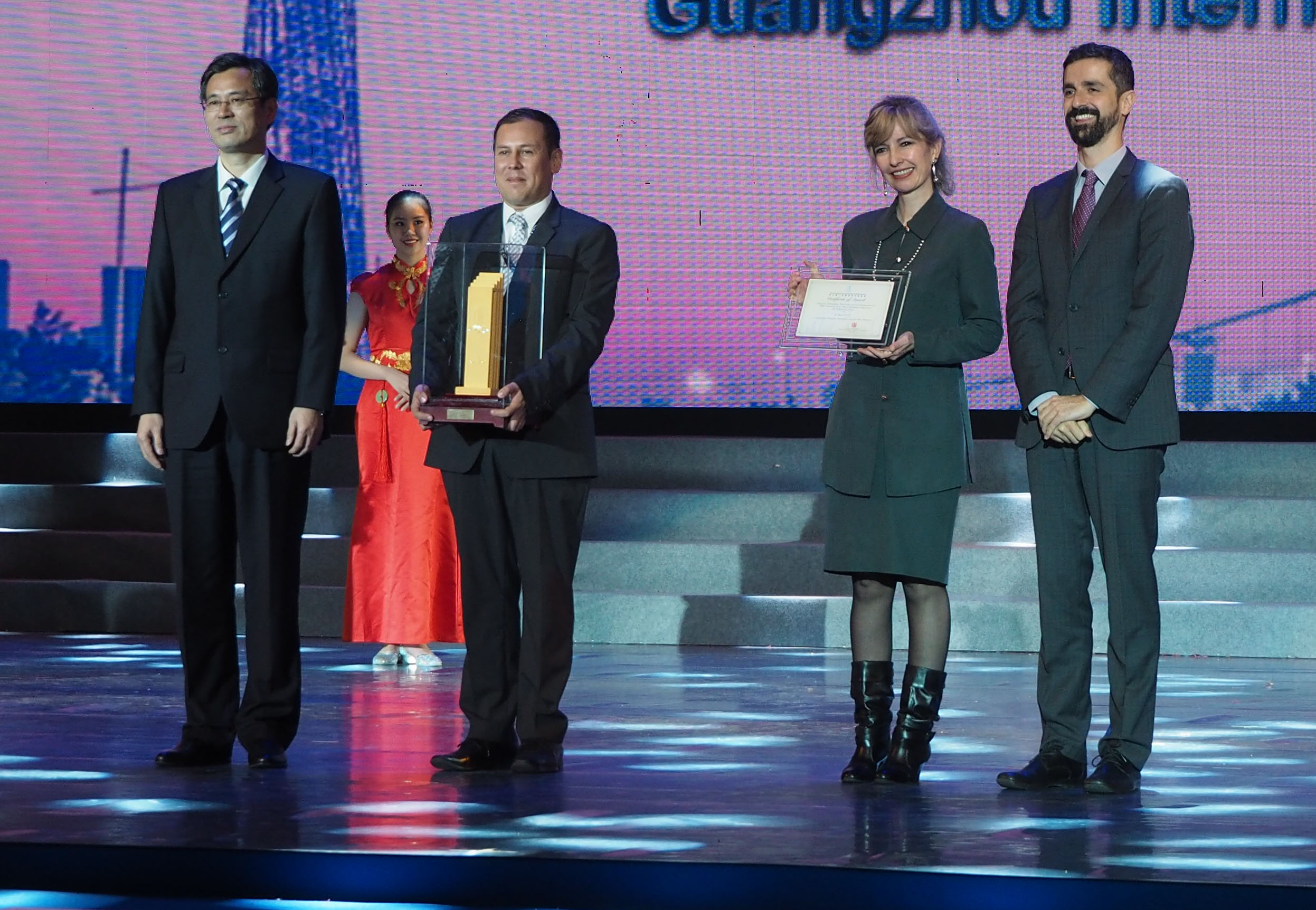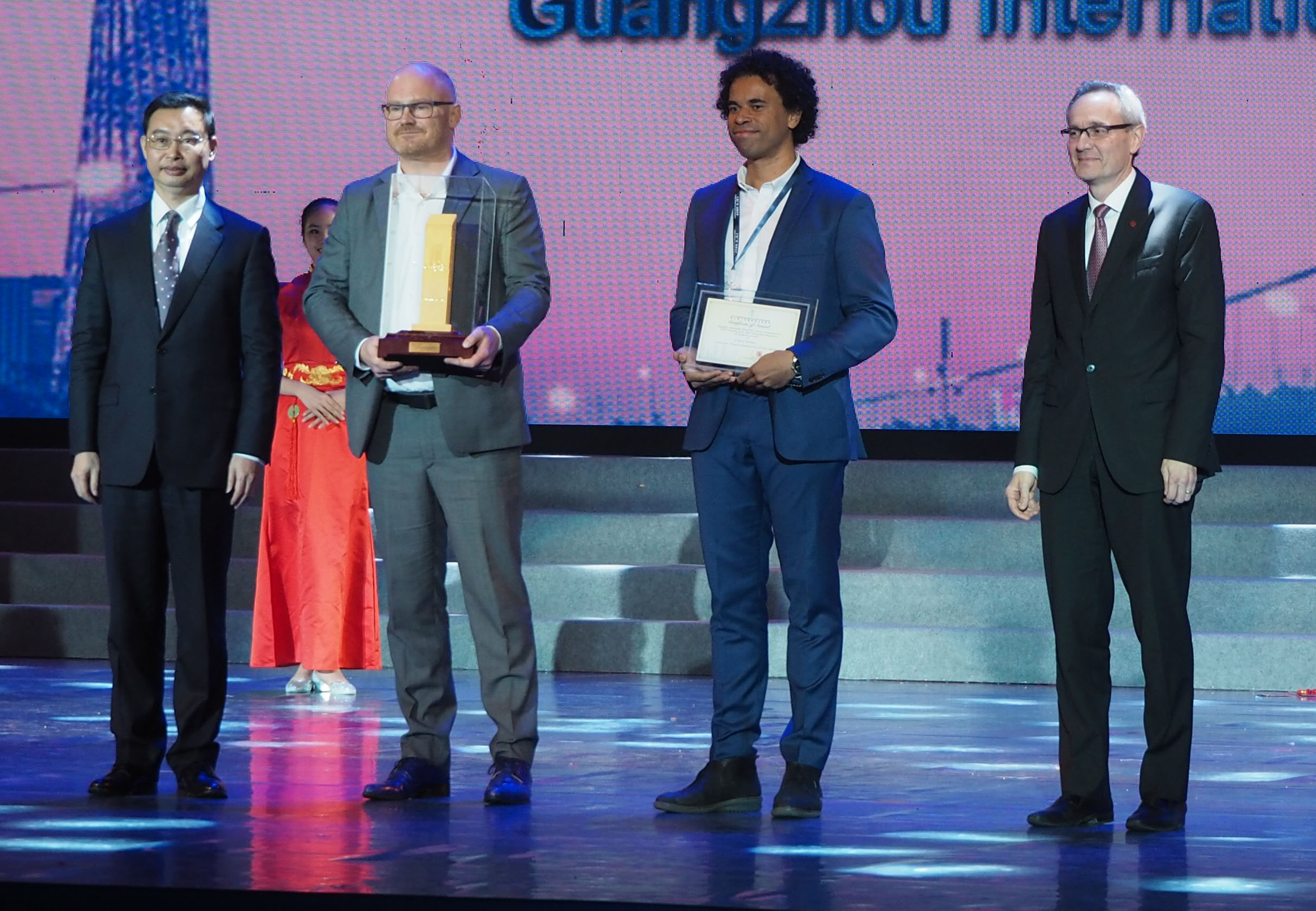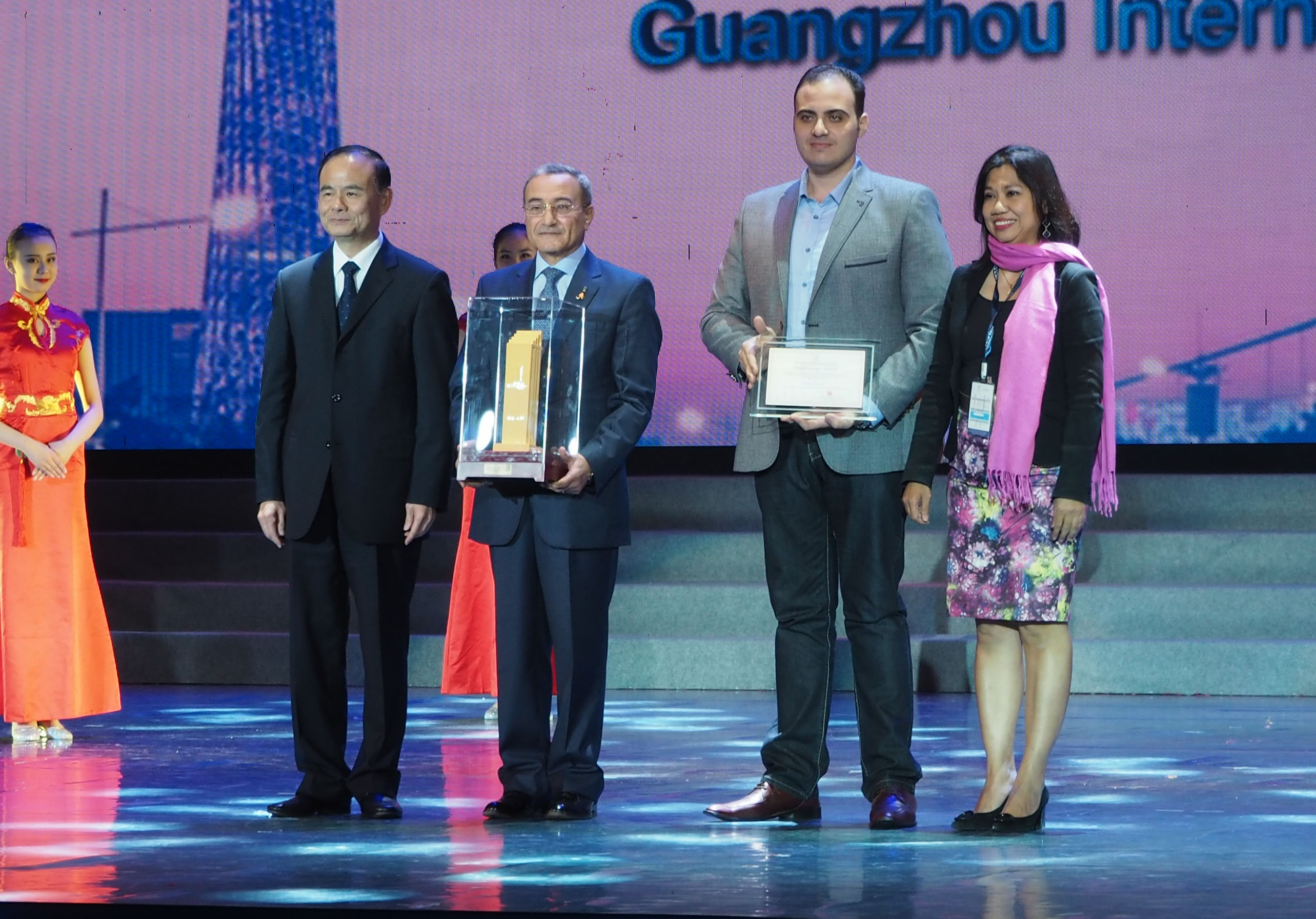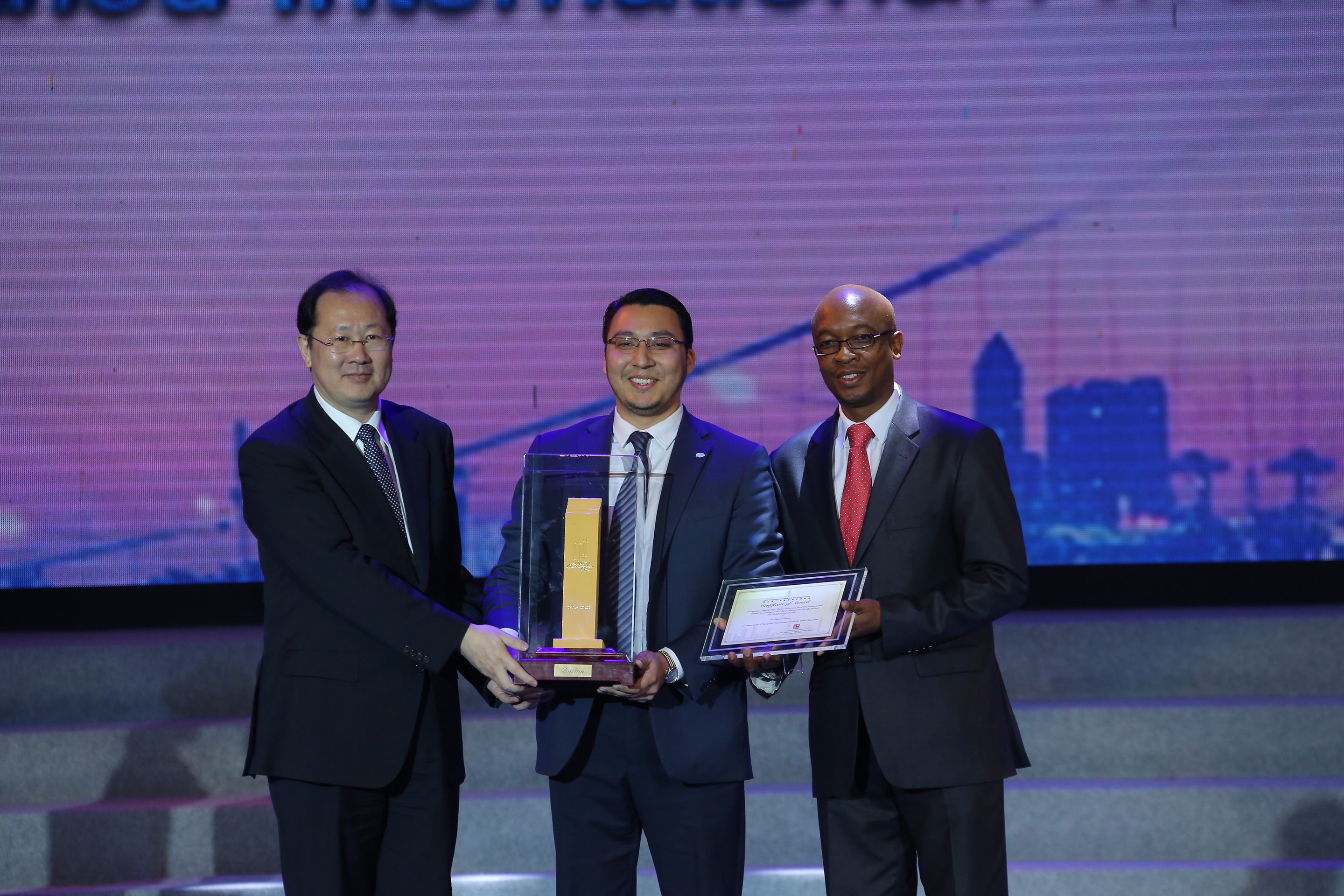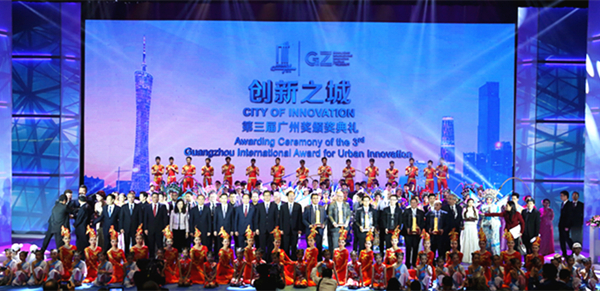Check out the 5 winners of the 2016 Edition of the UCLG Metropolis Guangzhou Award
07.12.2016
Boston, Copenhagen, La Paz, Qalyubeya Governorate and Songpa-gu are the winners of the 2016 Guangzhou International Award for Urban Innovation. This award, co-sponsored by United Cities and Local Governments (UCLG), the World Association of the Major Metropolises (Metropolis) and the city of Guangzhou, was held within the framework of the International Conference on Urban Innovation.
Launched for the first time in 2012, the Award for Urban Innovation recognizes the implementation of innovative urban projects in cities and regions.
The award ceremony saw over 600 guests from all the world gather under the theme “Global Wisdom for Local Solutions”.
The Director General of Guangzhou Foreign Affairs Office, Liu Baochun, emphasised “the importance of city to city learning and cooperation in order support the development of cities and local governments”.
The Secretary General of UCLG, Josep Roig, and the Secretary General of Metropolis, Felip Roca, stressed the need to ensure that lessons from the finalists of the Award are shared among local and regional government networks to inspire future action. They confirmed the commitment of their global organizations to support the Award going forward.
“The UCLG Learning strategy can be explained based on the idea of seek-sense-share. The Guangzhou Award is a great way to seek and share experiences of urban innovation at local level.” said Josep Roig, while Felip Roca agreed that “urban innovation helps us tackle inequalities and work towards sustainable development”.
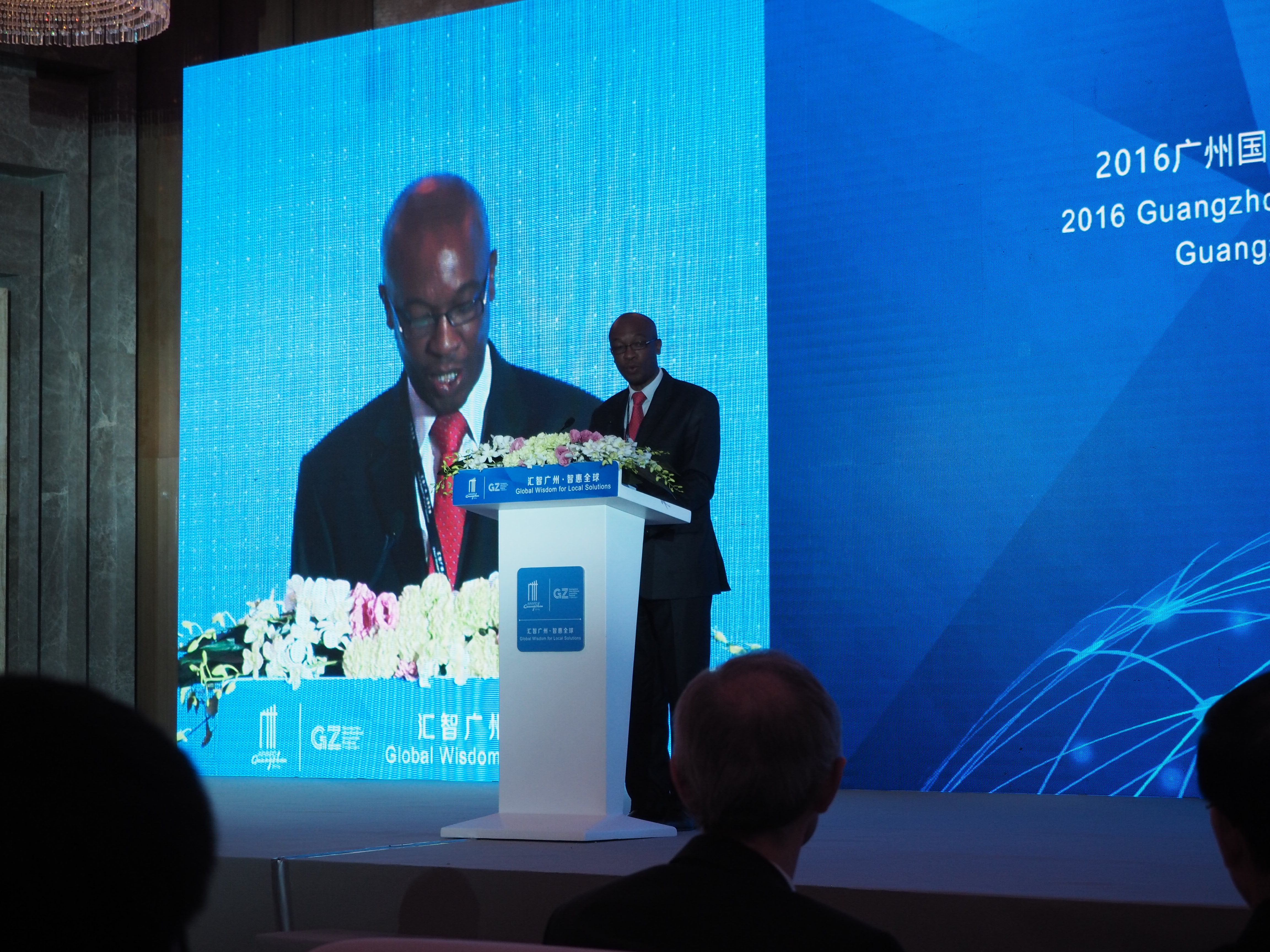
The Mayor of Guangzhou and Co-President of UCLG, Wen Guohui, highlighted the need to share practices among peers and acknowledged the important lessons learned by the city of Guangzhou through relations with other cities around the world.
UCLG President, Parks Tau, addressed the plenary session at the ceremony, thanking Wen Guohui for his commitment to UCLG and for continuing to support the pioneering Award, saying:
“Today our role as innovators is more important than ever before. The SDGs, the New Urban Agenda, and the Paris Climate Agreement require brave new solutions from all of us.
We local and regional leaders know that development, sustainability, and urbanization are inseparable. That’s why we’ve been advocating, through UCLG and the Global Taskforce, for links to be made between these new agendas at global level, and for synergies to be harnessed between them on the ground.
He further expressed that “one of UCLG’s founding principles is that we all become stronger when we share and learn from one another. The Guangzhou Award continues in this proud tradition”.
- See: The full speach of Mpho Parks Tau, President of UCLG at the Guangzhou Award for Urban Innovation
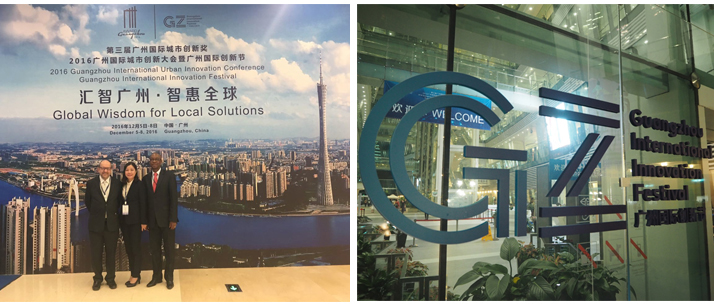
From 15 very interesting cases that can be visited at the Guangzhou Award site, five winners were selected:
Youth Lead the Change: Youth Participatory Budgeting, Boston (USA)
This initiative aims to empower youth to participate in the decision-making process of the city. Young population between 12 and 25 years acquire access to the participatory policymaking by participatory budgeting. In order to engage different youth communities from the city, the project developed an extensive network of partners like youth serving agencies, schools, universities.
Climate resilient Neighbourhood, Copenhagen (Denmark)
The St. Kjelds initiative is the pilot experience for the Copenhagen Adaptation Plan that aims to build resilience at neighbourhood level and improve urban life for its citizens. Heavy rains and floods in the city since 2011 changed the perceptions of the city to climate change risks. In order to avoid future floods, the initiative proposed sustainable storm water management through green solutions on the surface creating greener urban spaces.
The La Paz Zebras: Citizen Culture Project, La Paz (Bolivia)
This initiative aims to raise public awareness on road safety at city level by actively training vulnerable youth to become “civic educators”. The aim is to change both driver and pedestrian behaviour and to encourage both groups to obey traffic signs and rules. The outcome is both changing people’s behaviour resulting in less traffic congestion and accidents, and providing youth at risk with a unique opportunity to become active and responsible citizens. The initiative tackles road safety in a friendly and comic way. At the same time that engages and integrates youth at risk. Youth are given a meaningful role in society, one which both empowers them and provides them with respect and dignity.
Integrated Community Based Solid Waste Management project, Qalyubeya Governorate (Egypt)
Qalyubeya Governorate is part of Greater Cairo, which is one of the largest urban areas in Africa, with a mosaic of sub-cities where over 20 million people live. Rapid urbanization has caused an increase in informal housing areas, informal enterprises and growing inequality, which also affect the informal waste collectors and recyclers known as Zabaleen. These communities are now critical in promoting urban sustainability as Cairo continues to grow. Every year, more than 21 million tons of municipal waste is generated and the city would not be able to manage this escalating volume of waste in an effective and environmentally sound manner, without the contribution of the these informal waste pickers, living around the cities of Khosoos and Khanka in the Qalyubeya Governorate. This initiative presents an integrated approach towards waste management issues. There is a strong positive social, economic and environmental impact, affecting the lives of over 750,000 inhabitants and improving the living and working conditions of 20,000 informal waste collectors and recyclers residing in this area.
Songpa Solar Nanum (Sharing) Power Plant, Songpa-gu (South Korea)
This initiative presents a creative business and technology model to promote renewable energy – a public solar generation plant development that seeks to integrate issues of environmental sustainability and energy welfare. It offers an alternative to the common practice of energy subsidy.
For more info:
